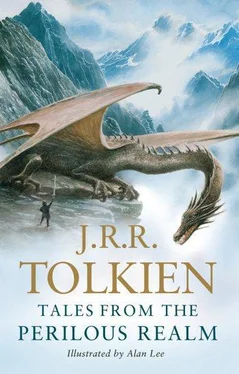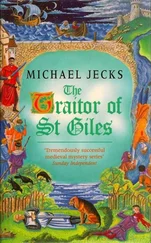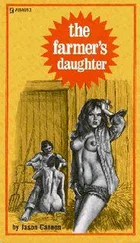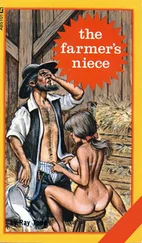Of the history of the Little Kingdom few fragments have survived; but by chance an account of its origin has been preserved: a legend, perhaps, rather than an account; for it is evidently a late compilation, full of marvels, derived not from sober annals, but from the popular lays to which its author frequently refers. For him the events that he records lay already in a distant past; but he seems, nonetheless, to have lived himself in the lands of the Little Kingdom. Such geographical knowledge as he shows (it is not his strong point) is of that country, while of regions outside it, north or west, he is plainly ignorant.
An excuse for presenting a translation of this curious tale, out of its very insular Latin into the modern tongue of the United Kingdom, may be found in the glimpse that it affords of life in a dark period of the history of Britain, not to mention the light that it throws on the origin of some difficult place-names. Some may find the character and adventures of its hero attractive in themselves.
The boundaries of the Little Kingdom, either in time or space, are not easy to determine from the scanty evidence. Since Brutus came to Britain many kings and realms have come and gone. The partition under Locrin, Camber, and Albanac, was only the first of many shifting divisions. What with the love of petty independence on the one hand, and on the other the greed of kings for wider realms, the years were filled with swift alternations of war and peace, of mirth and woe, as historians of the reign of Arthur tell us: a time of unsettled frontiers, when men might rise or fall suddenly, and songwriters had abundant material and eager audiences. Somewhere in those long years, after the days of King Coel maybe, but before Arthur or the Seven Kingdoms of the English, we must place the events here related; and their scene is the valley of the Thames, with an excursion north-west to the walls of Wales.
The capital of the Little Kingdom was evidently, as is ours, in its south-east corner, but its confines are vague. It seems never to have reached far up the Thames into the West, nor beyond Otmoor to the North; its eastern borders are dubious. There are indications in a fragmentary legend of Georgius son of Giles and his page Suovetaurilius (Suet) that at one time an outpost against the Middle Kingdom was maintained at Farthingho. But that situation does not concern this story, which is now presented without alteration or further comment, though the original grandiose title has bear suitably reduced to Farmer Giles of Ham.
AEGIDIUS DE HAMMO was a man who lived in the midmost parts of the Island of Britain. In full his name was Aegidius Ahenobarbus Julius Agricola de Hammo; for people were richly endowed with names in those days, now long ago, when this island was still happily divided into many kingdoms. There was more time then, and folly were fewer, so that most men were distinguished. However, those days are now over, so I will in what follows give the man his name shortly, and in the vulgar form: he was Farmer Giles of Ham, and he had a red beard. Ham was only a village, but villages were proud and independent still in those days.
Farmer Giles had a dog. The dog's name was Garm. Dogs had to be content with short names in the vernacular: the Book-Latin was reserved for their betters. Garm could not talk even dog-Latin; but he could use the vulgar tongue (as could most dogs of his day) either to bully or to brag or to wheedle in. Bullying was for beggars and trespassers, bragging for other dogs, and wheedling for his master. Garm was both proud and afraid of Giles, who could bully and brag better than he could.
The time was not one of hurry or bustle. But bustle has very little to do with business. Men did their work without it; and they got through a deal both of work and of talk. There was plenty to talk about, for memorable events occurred very frequently. But at the moment when this tale begins nothing memorable had, in fact, happened in Ham for quite a long time. Which suited Farmer Giles down to the ground: he was a slow sort of fellow, rather set in his ways, and taken up with his own affairs. He had his hands full (he said) keeping the wolf from the door that is, keeping himself as fat and comfortable as his father before him. The dog was busy helping him. Neither of them gave much thought to the Wide World outside their fields, the village, and the nearest market.
But the Wide World was there. The forest was not far off, and away west and north were the Wild Hills, and the dubious marches of the mountain-country. And among other things still at large there were giants: rude and uncultured folk, and troublesome at times. There was one giant in particular, larger and more stupid than his fellows. I find no mention of his name in the histories, but it does not matter. He was very large, his walking-stick was like a tree, and his tread was heavy. He brushed elms aside like tall grasses; and he was the ruin of roads and the desolation of gardens, for his great feet made holes in them as deep as wells; if he stumbled into a house, that was the end of it. And all this damage he did wherever he went, for his head was far above the roofs of houses and left his feet to look after themselves. He was near-sighted and also rather deaf. Fortunately he lived far off in the Wild, and seldom visited the lands inhabited by men, at least not on purpose. He had a great tumbledown house away up in the mountains; but he had very few friends owing to his deafness and his stupidity, and the scarcity of giants. He used to go out walking in the Wild Hills and in the empty regions at the feet of the mountains, all by himself.
One fine summer's day this giant went out for a walk, and wandered aimlessly along, doing a great deal of damage in the woods. Suddenly he noticed that the sun was setting, and felt that his supper-time was drawing near; but he discovered that he was in a part of the country that he did not know at all and had lost his way. Making a wrong guess at the right direction he walked and he walked until it was dark night. Then he sat down and waited for the moon to rise. Then he walked and walked in the moonlight, striding out with a will, for he was anxious to get home. He had left his best copper pot on the fire, and feared that the bottom would be burned. But his back was to the mountains, and he was already in the lands inhabited by men. He was, indeed, now drawing near to the farm of Aegidius Ahenobarbus Julius Agricola and the village called (in the vulgar tongue) Ham.
It was a fine night. The cows were in the fields, and Farmer Giles's dog had got out and gone for a walk on his own account. He had a fancy for moonshine, and rabbits. He had no idea, of course, that a giant was also out for a walk. That would have given him a good reason for going out without leave, but a still better reason for staying quiet in the kitchen. At about two o'clock the giant arrived in Farmer Giles's fields, broke the hedges, trampled on the crops, and flattened the mowing-grass. In five minutes he had done more damage than the royal fox-hunt could have done in five days.
Garm heard a thump-thump coming along the riverbank, and he ran to the west side of the low hill on which the farmhouse stood, just to see what was happening. Suddenly he saw the giant stride right across the river and tread upon Galathea, the farmer's favourite cow, squashing the poor beast as flat as the farmer could have squashed a blackbeetle.
That was more than enough for Garm. He gave a yelp of fright and bolted home. Quite forgetting that he was out without leave, he came and barked and yammered underneath his master's bedroom window. There was no answer for a long time. Farmer Giles was not easily wakened.
Читать дальше











